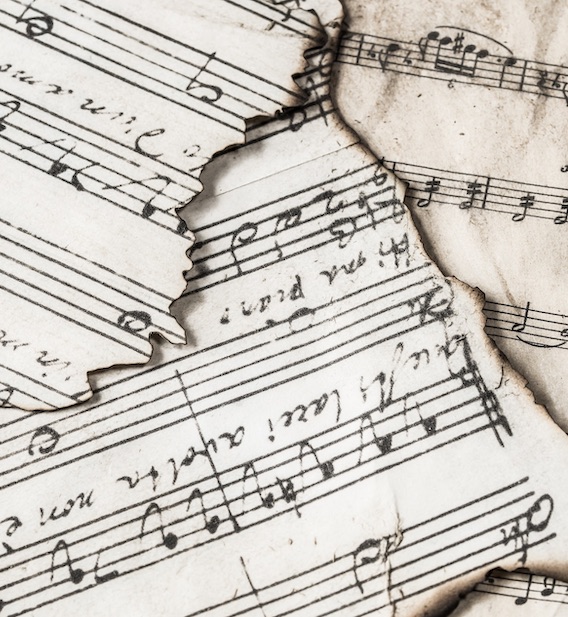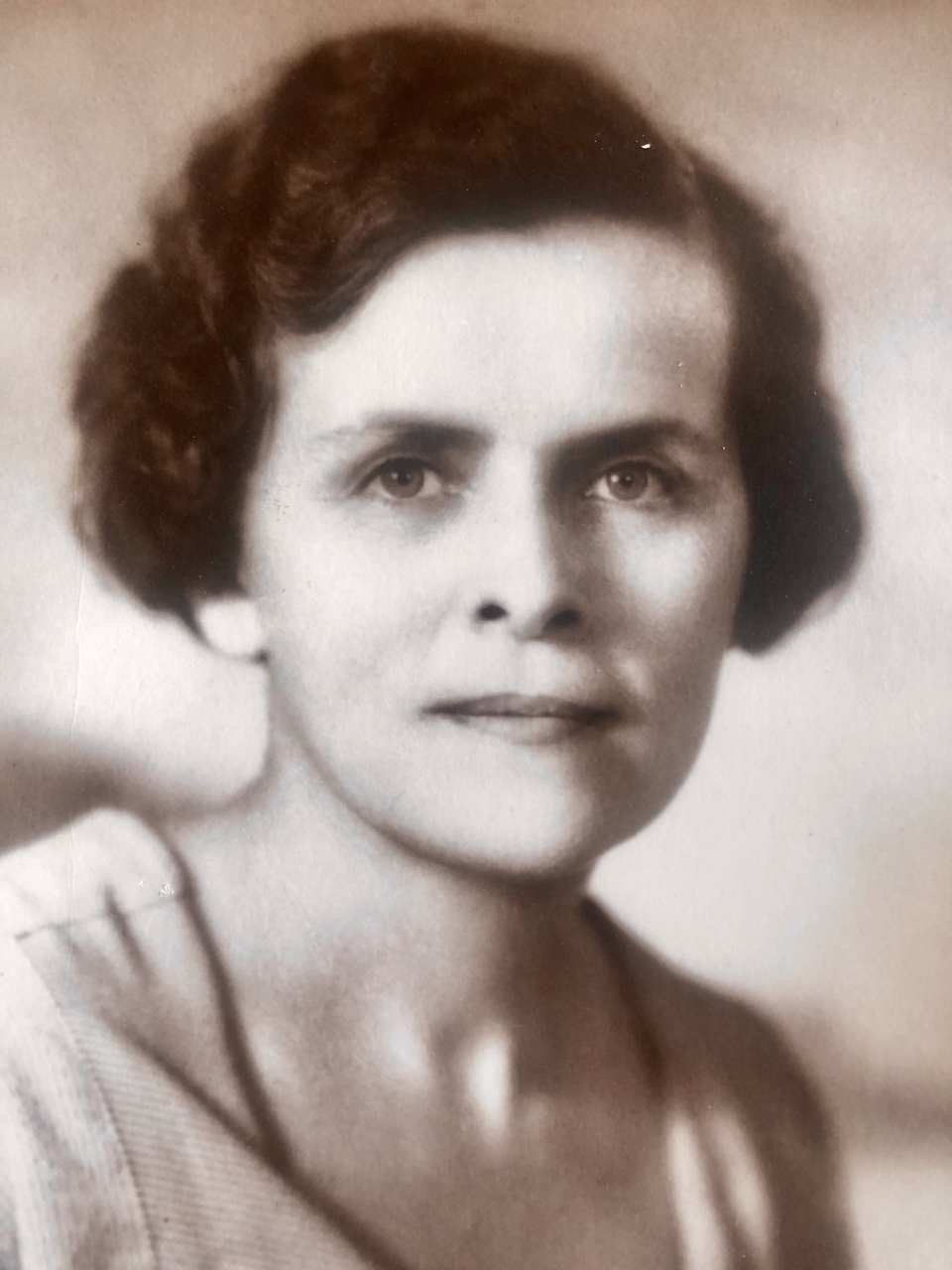This One's For the Girls
Facing a double mastectomy at age 23
It’s been nearly three years since I heard the eulogy, the hymns, and the loving testimony my father gave at my grandmother’s funeral. As she described me on the day of my birth, my paternal grandmother, Martha Gilmore, was truly “major beautiful.” She was the first female Baptist minister in Dallas, and her love knew no boundaries or obstacles. She simply followed God’s calling—registering the homeless to vote, working tirelessly to defeat George Bush—and she upset a lot of people at the time. Eventually she had to join the Methodist faith in order to preach from the pulpit. And while her sermons were always moving, it was the way she lived her life and loved indiscriminately that changed so many lives, including my own.
It’s because of my grandmother that I have decided, at age 23, to undergo a preventative double mastectomy with reconstruction. As it turns out, I carry a dangerous mutation in my BRCA1 gene, which is primarily responsible for suppressing tumors in breasts and ovaries. Basically, my power tool for fighting off breast and ovarian cancer is severely defective. Like my grandmother, women in my shoes carry a lifetime risk of 85 percent for breast cancer and 54 percent for ovarian cancer, which happens to be the deadliest and hardest to catch of all cancers in women. (For women without the mutation, the lifetime risks are 13 percent for breast cancer and 1.5 percent risk of ovarian cancer.) Even worse, women with this mutation are more likely to develop them before menopause, when such cancers tend to be more aggressive.
Needless to say, these are some big, scary numbers. But the thought of living my life unaware of such risks is even more terrifying to me.
I was willing to do anything it took to avoid the end my grandmother met.
My grandmother tested positive for the mutation in 2007, shortly before her death. She developed breast cancer at the age of 60, which is considered pretty late for someone with a BRCA1 mutation. Six months later, she was diagnosed with Stage IV ovarian cancer. Then, by the grace of God, she survived five relapses until, finally, the cancer spread to her brain. This beautiful, inspirational woman took her last breath on a Sunday. She was 71.
What saddens me the most is to think about all the years she lost and all that she could have done had she known sooner about the mutation. She could have seen me graduate from college last year. She could have seen my middle sister finish high school this spring. She could have seen my dad teach his first college course this summer. The science to save her life was available years before her first diagnosis, but she didn’t know, and now it’s too late. We miss her so much.
My grandmother’s parting gift to us was the knowledge of her BRCA1 mutation. She hesitated to test at first because she didn’t want to think of passing this legacy down to her children and grandchildren. But my grandmother quickly realized that knowledge is power, and this science could spare her family from all the pain and suffering she endured.
Sure enough, my dad tested positive for the BRCA1 mutation in November 2007, and I learned of my defective BRCA1 gene in August 2008, when I was 21. I have two younger sisters, Josephine, 18, and Alice, 16. They’ll test if and when they feel comfortable.
At first, my greatest fear was losing my breasts. Experts recommend that women with BRCA1 and BRCA2 mutations have annual mammograms and MRIs beginning at age 25, followed by a prophylactic double mastectomy at 35 and a prophylactic oophorectomy at 40. I was willing to do anything it took to avoid the end my grandmother met. If that meant eventually removing my breasts and my ovaries then that’s what I would have to do, but I was nervous. Terrified, at times.
My mother tried to reassure me. She kept telling me that my breasts would look absolutely incredible. But I didn’t understand. In my mind, a mastectomy meant simply removing the breasts; the only “reconstruction” I could imagine involved stuffing my bra. This thought was more paralyzing than the thought of cancer.
Then I saw the documentary In the Family, and it literally changed my life. At one point in the film a woman reveals her reconstructed breasts to the filmmaker, Joanna Rudnick, who is trying to decide whether to go through with the surgery herself. It was the first time I’d seen the kind of mastectomy my mother had been talking about all along.
While it is rare for women with a BRCA1 or BRCA2 gene mutation to develop breast cancer at my age, one of my dear friends was diagnosed at 23. I’ve changed my diet and exercise regimen in order reduce my risk little by little, but I have grown anxious to do something bigger to annihilate any chance that this cancer could end my life as it did my grandmother’s.
Experts have told me to make a decision not to make a decision, but I have trouble just living my life with this risk hanging over my head.
Experts have told me to make a decision not to make a decision. Research is being done every day and there’s no telling where the science might be in the next few years. I hope this will mean that, should my sisters test positive, they may not need preventative surgery. But I have trouble just living my life with this risk hanging over my head. Doctors tell me not to worry, but that’s easier said than done. Every time I do a self breast exam, I constantly wonder if what I’m feeling is a lump or breast duct. How am I to know?
Furthermore, since I’m high-risk, my doctors are going to want to biopsy anything they find when I go in for mammograms and MRIs, which are in order every year once I turn 25. One of my girlfriends had her first MRI recently at 25, and it showed several cysts, which had to be biopsied. She described in detail the procedure to me, and I cannot imagine anything more painful. The biopsy showed that the cysts were benign, but this was the first of many more MRIs my friend will need to have until she, too, decides to beat cancer to the chase with a mastectomy.
The one thing about this decision that I still struggle with is the fact that I will not be able to breastfeed my babies. My girlfriend wants to wait to do the surgery after she has children, and for a long time I had wanted to do the same. After all, what else are our breasts really for? I hope I’ll have an intimate connection with my children regardless, but I do want them to have the irreplaceable nutrition of breast milk. I’ve told my friends and sisters that if they happen to have children around the same time I do, I’m stealing their milk.
Dating complicates matters. I don’t have the security of strong marriage and a man who will forever love me no matter what. Instead, I am left to tackle these difficult decisions as a single woman. It’s hard not to wonder: will men find my breasts desirable after surgery? Will they admire the courage it took to defy my destiny and have a fair chance at life?
Then I met a young woman who had a prophylactic mastectomy last year at 21. Every morning she looks in the mirror and could not be happier with her new breasts. More importantly, my friend no longer has that daunting breast-cancer risk hanging over her head every day. She is so at ease, and it shows in the way she talks and walks and carries on with her life as a young woman with a full life ahead of her.
Without saying anything, she took off her sweater, and there were the most beautiful breasts I had ever seen.
We had lunch, she shared her story, and then I just had to see her breasts. We waited in line outside the restroom for a few minutes while we talked about plastic surgeons. Then the bathroom became available, and we walked in together, closed the door, and giggled at the reaction of the men and women waiting in the hallway. Without saying anything, she took off her sweater, then her tank top, and there, in front of me, were the most beautiful breasts I had ever seen. Tears came to my eyes, because I knew at that moment that everything is truly going to be OK.
That’s when I knew I wanted to have this surgery now. If my friend can do it, there’s no reason why I can’t, too. In fact, she’s still dating and has found that men are very supportive of her decision. She also raised a good point: it’s a great way to weed out the douche bags right off the bat. If they can’t handle the fact that she was proactive about her health, then too bad.
She’s inspired me to push forward, begin researching, schedule consultations with surgeons, and make this happen. I plan to have my surgery around Christmas, when I will have a little more time off of work. While I’m feeling very confident about this decision, I know that there will be times when I’m feeling overwhelmed and scared. And that’s when I’ll think about my grandmother. Memamma, as you used to ask the Lord, give me a double portion of your spirit.
Excerpted from Previve by Claudia Gilmore. Copyright (c) 2010 by Claudia Gilmore. All rights reserved.


